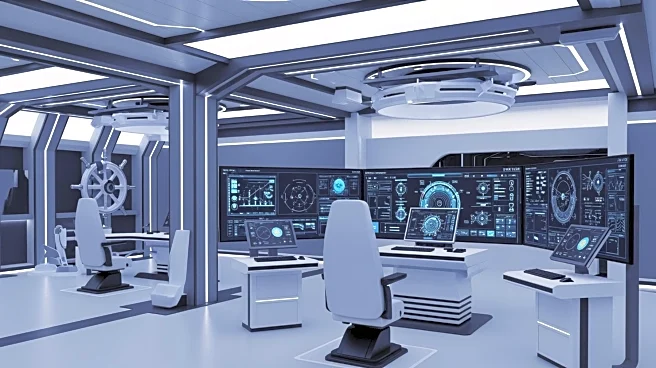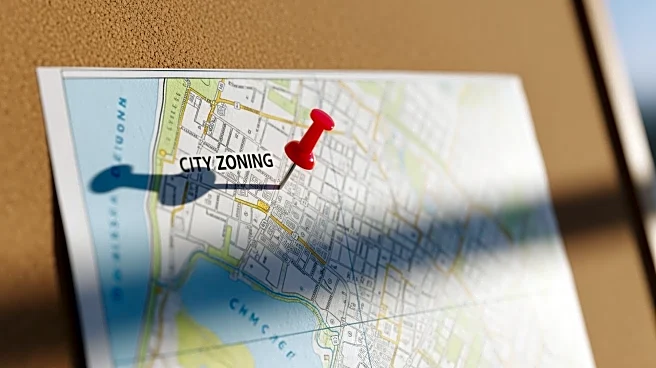What's Happening?
Finnish technology group Wärtsilä and Sinocrew Maritime Services have inaugurated an advanced maritime simulation and training centre in Beihai, China. The Beihai International Seafarer Training Center (BISTC) aims to support the next generation of seafarers
in the Asian cruise industry and advance the adoption of decarbonization technologies. The facility will provide simulation-based training focused on cruise ship operations and sustainable maritime practices, equipping seafarers with skills needed for the transition to alternative marine fuels and more energy-efficient operations. The partners have also signed a framework Memorandum of Understanding (MoU) to establish the first Maritime Advancement in Simulation, Technology and R&D Services (MASTERS) program site in China. The center features high-fidelity Wärtsilä simulators and specialized training solutions, designed as a model for future maritime education and international cooperation.
Why It's Important?
The establishment of the Beihai International Seafarer Training Center is significant for the maritime industry, particularly in the ASEAN region, as it addresses the growing need for skilled seafarers capable of operating in a decarbonized environment. By focusing on sustainable maritime practices and alternative marine fuels, the center supports global efforts to reduce carbon emissions in the shipping industry. This initiative not only enhances the proficiency of seafarers but also contributes to the broader goal of achieving environmental sustainability in maritime operations. The collaboration between Wärtsilä and Sinocrew represents a strategic move to build an innovative, sustainable maritime talent ecosystem, which is crucial for the future of cruise sector shipping.
What's Next?
The Beihai center is expected to deliver tailored training courses, technical assistance, and long-term service and maintenance support to ensure the technology remains state-of-the-art. As the maritime industry continues to evolve, the center will play a pivotal role in preparing seafarers for the challenges of decarbonization and the adoption of new technologies. The success of this initiative could lead to the establishment of similar training centers in other regions, further promoting international cooperation in maritime education and sustainable practices.














